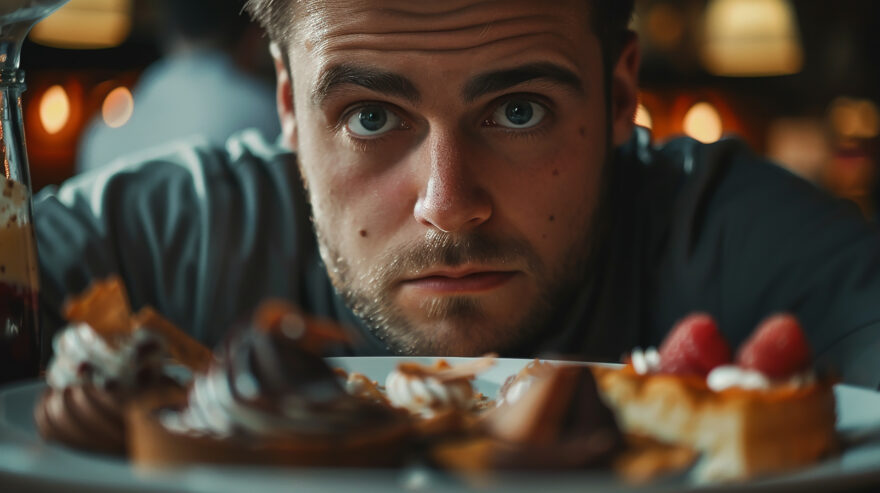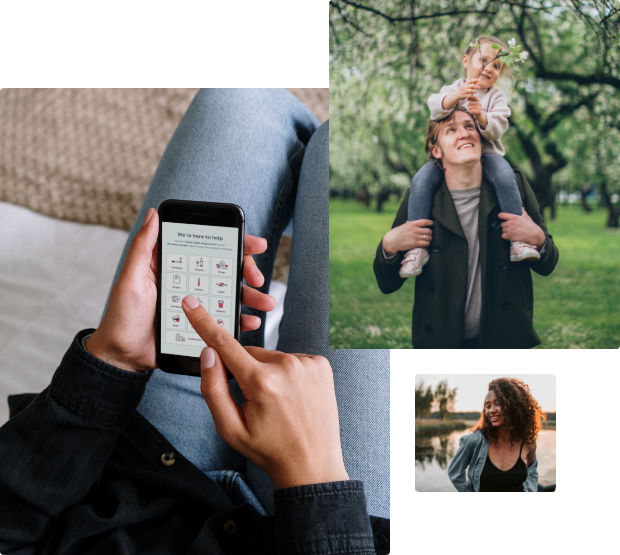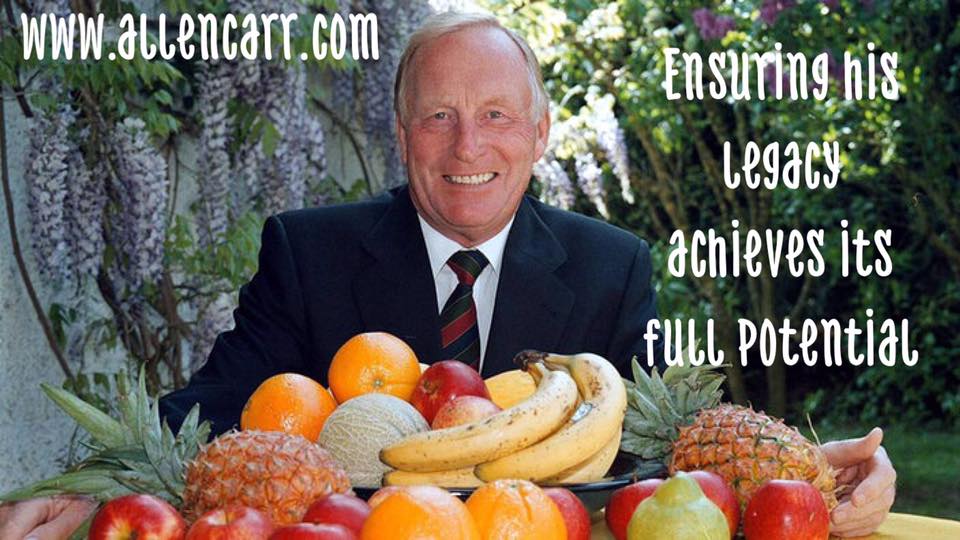10 tips for dealing with food guilt
Overcome food guilt: tips for a healthier relationship with food.

Introduction
Food guilt is an emotional weight many of us carry.
Whether it’s a second helping of dessert or a takeaway treat on a busy day, feeling guilty about food can harm our mental and physical well-being.
At Allen Carr’s Easyway, we believe in freeing people from unnecessary burdens—and food guilt is one of them.
Let’s explore what food guilt is, why it happens, and how you can liberate yourself from it for good.
What Is food guilt?
Food guilt refers to the shame or regret experienced after eating foods perceived as “bad” or indulgent.
This can range from a fleeting moment of discomfort to a deeply ingrained pattern that affects your relationship with food.
This guilt often stems from societal pressures, diet culture, or self-imposed rules around what constitutes “healthy” eating.
Understanding food guilt is the first step to overcoming it.
Is it normal to feel guilty after eating?
Yes, it is common, but that doesn’t mean it’s helpful.
Many people internalise the idea that enjoying certain foods equates to failure or lack of discipline.
This is reinforced by media messaging that labels foods as “clean” or “naughty”—as though what you eat defines your character.
While feeling guilty is a widespread experience, it’s not a necessary or productive part of life.
What causes food guilt?
Several factors contribute to food guilt:
-
Diet culture
Endless messaging about “good” versus “bad” foods creates a moral framework around eating.
-
Unrealistic body ideals
Media and social platforms perpetuate unattainable body standards, leading people to tie their self-worth to food choices.
-
Past experiences
Comments from others or childhood experiences may leave lasting imprints.
-
All-or-nothing thinking
Viewing one indulgence as a complete derailment of your goals can exacerbate guilt.
-
Stress and emotions
Turning to food for comfort in emotional situations can lead to post-eating regret.
What’s stopping you?
Struggled with losing weight in the past? Unhappy about your relationship with food?
Need help to lose weight?
Want to, but concerned that you’ll find it tough?
Worried that you’ll be deprived for the rest of your life without the food you like?
We can help you to understand and remove those fears and in so doing, make it easy.
Start the free quizWhy you shouldn’t feel guilty about eating
Food is not just fuel; it’s culture, connection, celebration, and joy.
Feeling guilty about eating overlooks the essential role food plays in our lives.
Here are a few reasons to let go of guilt:
-
Food isn’t morally good or bad
Eating a slice of cake doesn’t make you a “bad” person, just as eating kale doesn’t make you “good.”
-
Balance is key
One meal won’t make or break your health; it’s your overall pattern that matters.
-
Guilt can be harmful
Chronic guilt can lead to disordered eating patterns and increased stress, which negatively impact your health.
How to quit feeling guilty about eating
Here are 10 practical tips to break free from food guilt and build a healthier relationship with eating:
-
Ditch the diet mentality
Quit categorising foods as “good” or “bad.” All foods can fit into a balanced diet. At Allen Carr’s Easyway to Lose Weight there are no diets for this reason.
-
Practice mindful eating
Focus on your food—its flavours, textures, and how it makes you feel. This can help you enjoy it without judgment.
-
Reframe your thoughts
Replace guilt-ridden thoughts like “I shouldn’t have eaten that” with affirmations like “I enjoyed a treat, and that’s okay.”
-
Understand your triggers
Notice when and why guilt arises. Is it after social events? Or when you’re stressed? Awareness is key.
-
Focus on nutritional variety
Rather than restricting, aim to include a wide range of foods to nourish your body.
-
Challenge unrealistic standards
Unfollow accounts or avoid content that promotes harmful diet culture or unattainable ideals.
-
Seek professional support
If food guilt is deeply ingrained, Allen Carr’s Easyway to Quit Emotional Eating are here to help.
-
Find joy in exercise
Exercise for the pleasure it brings, not as a punishment for eating. To change how you think about exercise see Allen Carr’s Easyway to Enjoy Exercise.
-
Be kind to yourself
Remember, everyone eats for reasons beyond hunger—and that’s perfectly normal.
Final Thoughts
Releasing yourself from food guilt is not about abandoning health but embracing a more compassionate, balanced approach to eating.
By shifting your mindset and unlearning harmful beliefs, you can enjoy food without regret.
At Allen Carr’s Easyway to Lose Weight, we understand and are here to help you make lasting change.
Start your journey to a guilt-free life today—because food is meant to be savoured, not feared.
Free Online Quiz
Not sure if you’re ready?
Daunted by the prospect of what what changing your eating habits will mean for you?
We can help.
Take a few minutes to fill out our online consultation and we will get back to you with our personalised recommendation.





